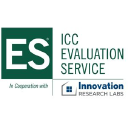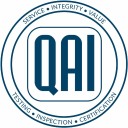EN ISO 6927:2021
(Main)Buildings and civil engineering sealants - Vocabulary (ISO 6927:2021)
Buildings and civil engineering sealants - Vocabulary (ISO 6927:2021)
This document defines technical terms for self-levelling and gun-grade (gunnable) sealants for above-ground exposed structures.
Dichtstoffe im Hoch- und Tiefbau - Begriffe (ISO 6927:2021))
Dieses Dokument legt Fachbegriffe für im Hoch- und Tiefbau verwendbare selbst nivellierende (self-levelling) und spritzbare (gun-grade) Dichtstoffe fest.
Mastics pour le bâtiment et le génie civil - Vocabulaire (ISO 6927:2021)
Le présent document définit des termes techniques relatifs aux mastics auto-nivelants et extrudables au pistolet pour ouvrages externes (non enterrés).
Tesnilne mase za stavbe in gradbene inženirske objekte - Slovar (ISO 6927:2021)
General Information
- Status
- Published
- Publication Date
- 13-Apr-2021
- Withdrawal Date
- 30-Oct-2021
- Technical Committee
- CEN/SS B02 - Structures
- Drafting Committee
- CEN/SS B02 - Structures
- Current Stage
- 6060 - Definitive text made available (DAV) - Publishing
- Start Date
- 14-Apr-2021
- Completion Date
- 14-Apr-2021
Relations
- Replaces
EN ISO 6927:2012 - Buildings and civil engineering works - Sealants - Vocabulary (ISO 6927:2012) - Effective Date
- 21-Apr-2021
- Effective Date
- 28-Jan-2026
- Effective Date
- 28-Jan-2026
- Effective Date
- 28-Jan-2026
- Effective Date
- 28-Jan-2026
- Effective Date
- 28-Jan-2026
- Effective Date
- 28-Jan-2026
- Referred By
EN 15434-1:2023 - Bonding sealants - Part 1: Bonded glazing sealants for direct light exposure - Effective Date
- 28-Jan-2026
- Effective Date
- 28-Jan-2026
- Referred By
EN 14187-1:2017 - Cold applied joint sealants - Test methods - Part 1: Determination of rate of cure - Effective Date
- 28-Jan-2026
- Effective Date
- 28-Jan-2026
- Effective Date
- 28-Jan-2026
- Effective Date
- 28-Jan-2026
- Effective Date
- 28-Jan-2026
- Effective Date
- 28-Jan-2026
Overview
EN ISO 6927:2021 - Buildings and civil engineering sealants - Vocabulary (ISO 6927:2021) is a harmonized CEN/ISO vocabulary standard that defines the technical terms used for self‑levelling and gun‑grade (gunnable) sealants intended for above‑ground exposed structures. The 2021 edition supersedes EN ISO 6927:2012 and standardizes terminology across manufacturers, specifiers and test laboratories to improve clarity in specifications, testing and product development.
Key topics covered
The standard organizes and defines terminology across several practical domains:
Sealant classification
- Terms such as sealant, elastic sealant, plastic sealant, one‑component, multi‑component, solvent‑release, water‑borne, self‑levelling, gun‑grade and non‑sag.
- Modulus thresholds for classification: low‑modulus (secant tensile modulus < 0.4 N/mm² at +23 °C and < 0.6 N/mm² at −20 °C) and high‑modulus (> 0.4 N/mm² at +23 °C or > 0.6 N/mm² at −20 °C).
Ancillary materials
- Definitions for primer, back‑up material (backing), substrate, joint, masking tape, cleaning agent and other installation aids.
Rheology and application
- Rheological terms such as extrusion rate, extrudability, resistance to flow (non‑sag) and self‑levelling.
- Application and cure vocabulary: pot life, tooling, tack‑free time, cure, cure time, skinning time, cure depth and cure rate.
Physical properties, failure, durability/aesthetics
- Terms used to describe adhesion/cohesion, elastic recovery, strain/stress relationships, and serviceability attributes relevant for exposed building joints.
Practical applications and users
EN ISO 6927:2021 is a vocabulary resource rather than a prescriptive performance standard. Typical users include:
- Manufacturers - for consistent product datasheets and labeling.
- Architects and specifiers - to write unambiguous specifications for façade, glazing and expansion joints.
- Contractors and façade installers - to interpret installation instructions and select appropriate sealant types (self‑levelling vs gun‑grade).
- Test laboratories and conformity assessors - to ensure test reports use standardized terminology.
- Research & development teams - for product development and cross‑industry communication.
Using a common vocabulary reduces ambiguity in procurement, testing and regulatory compliance for building and civil engineering sealant systems.
Related standards
- Normative reference: ISO 11600 - Building construction - Jointing products - Classification and requirements for sealants (commonly used alongside EN ISO 6927:2021).
Keywords: EN ISO 6927:2021, building sealants vocabulary, sealant terminology, self‑levelling sealant, gun‑grade sealant, sealant classification, sealant properties.
Get Certified
Connect with accredited certification bodies for this standard

ICC Evaluation Service
Building products evaluation and certification.

QAI Laboratories
Building and construction product testing and certification.

Aboma Certification B.V.
Specialized in construction, metal, and transport sectors.
Sponsored listings
Frequently Asked Questions
EN ISO 6927:2021 is a standard published by the European Committee for Standardization (CEN). Its full title is "Buildings and civil engineering sealants - Vocabulary (ISO 6927:2021)". This standard covers: This document defines technical terms for self-levelling and gun-grade (gunnable) sealants for above-ground exposed structures.
This document defines technical terms for self-levelling and gun-grade (gunnable) sealants for above-ground exposed structures.
EN ISO 6927:2021 is classified under the following ICS (International Classification for Standards) categories: 01.040.91 - Construction materials and building (Vocabularies); 91.100.50 - Binders. Sealing materials. The ICS classification helps identify the subject area and facilitates finding related standards.
EN ISO 6927:2021 has the following relationships with other standards: It is inter standard links to EN ISO 6927:2012, EN 14187-7:2019, EN 14187-4:2017, EN 14187-8:2017, EN 15651-4:2017, EN 14187-2:2017, EN 15651-5:2017, EN 15434-1:2023, EN 14187-6:2017, EN 14187-1:2017, EN 15651-1:2017, EN 15651-3:2017, EN 14187-9:2019, EN 14187-5:2019, EN 14187-3:2017. Understanding these relationships helps ensure you are using the most current and applicable version of the standard.
EN ISO 6927:2021 is available in PDF format for immediate download after purchase. The document can be added to your cart and obtained through the secure checkout process. Digital delivery ensures instant access to the complete standard document.
Standards Content (Sample)
SLOVENSKI STANDARD
01-julij-2021
Nadomešča:
SIST EN ISO 6927:2012
Tesnilne mase za stavbe in gradbene inženirske objekte - Slovar (ISO 6927:2021)
Buildings and civil engineering sealants - Vocabulary (ISO 6927:2021)
Dichtstoffe im Hoch- und Tiefbau - Begriffe (ISO 6927:2021)
Mastics pour le bâtiment et le génie civil - Vocabulaire (ISO 6927:2021)
Ta slovenski standard je istoveten z: EN ISO 6927:2021
ICS:
01.040.91 Gradbeni materiali in gradnja Construction materials and
(Slovarji) building (Vocabularies)
91.100.50 Veziva. Tesnilni materiali Binders. Sealing materials
2003-01.Slovenski inštitut za standardizacijo. Razmnoževanje celote ali delov tega standarda ni dovoljeno.
EN ISO 6927
EUROPEAN STANDARD
NORME EUROPÉENNE
April 2021
EUROPÄISCHE NORM
ICS 01.040.91; 91.100.50 Supersedes EN ISO 6927:2012
English Version
Buildings and civil engineering sealants - Vocabulary (ISO
6927:2021)
Mastics pour le bâtiment et le génie civil - Vocabulaire Bauwesen - Dichtstoffe - Begriffe (ISO 6927:2021)
(ISO 6927:2021)
This European Standard was approved by CEN on 8 November 2020.
CEN members are bound to comply with the CEN/CENELEC Internal Regulations which stipulate the conditions for giving this
European Standard the status of a national standard without any alteration. Up-to-date lists and bibliographical references
concerning such national standards may be obtained on application to the CEN-CENELEC Management Centre or to any CEN
member.
This European Standard exists in three official versions (English, French, German). A version in any other language made by
translation under the responsibility of a CEN member into its own language and notified to the CEN-CENELEC Management
Centre has the same status as the official versions.
CEN members are the national standards bodies of Austria, Belgium, Bulgaria, Croatia, Cyprus, Czech Republic, Denmark, Estonia,
Finland, France, Germany, Greece, Hungary, Iceland, Ireland, Italy, Latvia, Lithuania, Luxembourg, Malta, Netherlands, Norway,
Poland, Portugal, Republic of North Macedonia, Romania, Serbia, Slovakia, Slovenia, Spain, Sweden, Switzerland, Turkey and
United Kingdom.
EUROPEAN COMMITTEE FOR STANDARDIZATION
COMITÉ EUROPÉEN DE NORMALISATION
EUROPÄISCHES KOMITEE FÜR NORMUNG
CEN-CENELEC Management Centre: Rue de la Science 23, B-1040 Brussels
© 2021 CEN All rights of exploitation in any form and by any means reserved Ref. No. EN ISO 6927:2021 E
worldwide for CEN national Members.
Contents Page
European foreword . 3
European foreword
This document (EN ISO 6927:2021) has been prepared by Technical Committee ISO/TC 59 "Buildings
and civil engineering works" in collaboration with Technical Committee CEN/SS B02 “Structures” the
secretariat of which is held by CCMC.
This European Standard shall be given the status of a national standard, either by publication of an
identical text or by endorsement, at the latest by October 2021, and conflicting national standards shall
be withdrawn at the latest by October 2021.
Attention is drawn to the possibility that some of the elements of this document may be the subject of
patent rights. CEN shall not be held responsible for identifying any or all such patent rights.
This document supersedes EN ISO 6927:2012.
According to the CEN-CENELEC Internal Regulations, the national standards organizations of the
following countries are bound to implement this European Standard: Austria, Belgium, Bulgaria,
Croatia, Cyprus, Czech Republic, Denmark, Estonia, Finland, France, Germany, Greece, Hungary, Iceland,
Ireland, Italy, Latvia, Lithuania, Luxembourg, Malta, Netherlands, Norway, Poland, Portugal, Republic of
North Macedonia, Romania, Serbia, Slovakia, Slovenia, Spain, Sweden, Switzerland, Turkey and the
United Kingdom.
Endorsement notice
The text of ISO 6927:2021 has been approved by CEN as EN ISO 6927:2021 without any modification.
INTERNATIONAL ISO
STANDARD 6927
Third edition
2021-03
Building and civil engineering
sealants — Vocabulary
Mastics pour le bâtiment et le génie civil — Vocabulaire
Reference number
ISO 6927:2021(E)
©
ISO 2021
ISO 6927:2021(E)
© ISO 2021
All rights reserved. Unless otherwise specified, or required in the context of its implementation, no part of this publication may
be reproduced or utilized otherwise in any form or by any means, electronic or mechanical, including photocopying, or posting
on the internet or an intranet, without prior written permission. Permission can be requested from either ISO at the address
below or ISO’s member body in the country of the requester.
ISO copyright office
CP 401 • Ch. de Blandonnet 8
CH-1214 Vernier, Geneva
Phone: +41 22 749 01 11
Email: copyright@iso.org
Website: www.iso.org
Published in Switzerland
ii © ISO 2021 – All rights reserved
ISO 6927:2021(E)
Contents Page
Foreword .iv
1 Scope . 1
2 Normative references . 1
3 Terms and definitions . 1
3.1 Sealant classification . 1
3.2 Ancillary materials . 2
3.3 Rheology . 3
3.4 Application . 4
3.5 Physical properties . 5
3.6 Failure . 7
3.7 Durability/aesthetics . 8
Bibliography .10
ISO 6927:2021(E)
Foreword
ISO (the International Organization for Standardization) is a worldwide federation of national standards
bodies (ISO member bodies). The work of preparing International Standards is normally carried out
through ISO technical committees. Each member body interested in a subject for which a technical
committee has been established has the right to be represented on that committee. International
organizations, governmental and non-governmental, in liaison with ISO, also take part in the work.
ISO collaborates closely with the International Electrotechnical Commission (IEC) on all matters of
electrotechnical standardization.
The procedures used to develop this document and those intended for its further maintenance are
described in the ISO/IEC Directives, Part 1. In particular, the different approval criteria needed for the
different types of ISO documents should be noted. This document was drafted in accordance with the
editorial rules of the ISO/IEC Directives, Part 2 (see www .iso .org/ directives).
Attention is drawn to the possibility that some of the elements of this document may be the subject of
patent rights. ISO shall not be held responsible for identifying any or all such patent rights. Details of
any patent rights identified during the development of the document will be in the Introduction and/or
on the ISO list of patent declarations received (see www .iso .org/ patents).
Any trade name used in this document is information given for the convenience of users and does not
constitute an endorsement.
For an explanation of the voluntary nature of standards, the meaning of ISO specific terms and
expressions related to conformity assessment, as well as information about ISO's adherence to the
World Trade Organization (WTO) principles in the Technical Barriers to Trade (TBT), see www .iso .org/
iso/ foreword .html.
This document was prepared by Technical Committee ISO/TC 59, Buildings and civil engineering works,
Subcommittee SC 8, Sealants, in collaboration with the European Committee for Standardization
(CEN) Technical Committee CEN/SS B02, Structures, in accordance with the Agreement on technical
cooperation between ISO and CEN (Vienna Agreement).
This third edition cancels and replaces the second edition (ISO 6927:2012), which has been technically
revised.
The main changes compared to the previous edition are as follows:
— modified the title;
— added important terminology for the property of the sealant to reflect the progress of the sealant
technology.
Any feedback or questions on this document should be directed to the user’s national standards body. A
complete listing of these bodies can be found at www .iso .org/ members .html.
iv © ISO 2021 – All rights reserved
INTERNATIONAL STANDARD ISO 6927:2021(E)
Building and civil engineering sealants — Vocabulary
1 Scope
This document defines technical terms for self-levelling and gun-grade (gunnable) sealants for above-
ground exposed structures.
2 Normative references
The following documents are referred to in the text in such a way that some or all of their content
constitutes requirements of this document. For dated references, only the edition cited applies. For
undated references, the latest edition of the referenced document (including any amendments) applies.
ISO 11600, Building construction — Jointing products — Classification and requirements for sealants
3 Terms and definitions
ISO and IEC maintain terminological databases for use in standardization at the following addresses:
— ISO Online browsing platform: available at https:// www .iso .org/ obp
— IEC Electropedia: available at http:// www .electropedia .org/
3.1 Sealant classification
3.1.1
seal
install the appropriate products in the joint (3.2.15) between components in order to prevent the
penetration of water, moisture and/or air between the elements, components and assemblies made of
the same or dissimilar materials
3.1.2
sealant
text material applied in an unformed state which, once cured (3.4.7) or dried, has the adhesive and
cohesive properties to seal (3.1.1) a joint (3.2.15)
3.1.3
elastic sealant
sealant (3.1.2) in which the stresses (3.5.8) induced as a result of joint (3.2.15) movement are nearly
proportional to the strain (3.5.7)
Note 1 to entry: The elastic behaviour of the sealant is evaluated by the elastic recovery (3.5.10) measurement
(see ISO 7389).
3.1.4
plastic sealant
sealant (3.1.2) in which the stresses (3.5.8) induced as a result of joint (3.2.15) movement are nearly
proportional to the rate of joint movement and are rapidly relieved when joint movement ceases
Note 1 to entry: The plastic behaviour of the sealant is evaluated by the elastic recovery (3.5.10) measurement
(see ISO 7389).
3.1.5
one component sealant
sealant (3.1.2) ready for use not requiring mixing
ISO 6927:2021(E)
3.1.6
multi-component sealant
sealant (3.1.2) supplied in the form of multiple separate components which become ready for use after
mixing together
3.1.7
solvent-release sealant
sealant (3.1.2) supplied in the form of a suspension or solution in an organic solvent and which cures
(
...




Questions, Comments and Discussion
Ask us and Technical Secretary will try to provide an answer. You can facilitate discussion about the standard in here.
Loading comments...